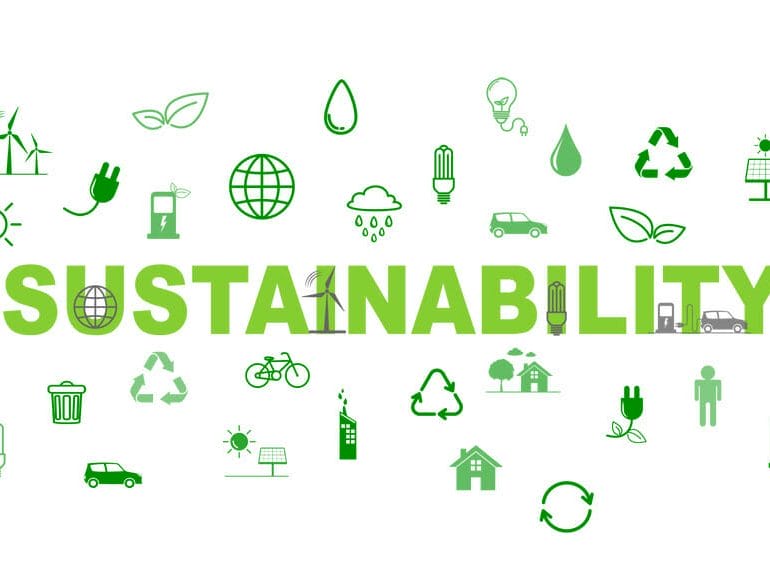“When we talk about sustainability, we should talk about knowledge. Unfortunately, though, most of the times there is no such knowledge”. Our interview with Giusy Bettoni (C.L.A.S.S.)
It is too easy to say “sustainability”. Too easy and almost ordinary. This term, on which all industrial sectors have been centering their evolution for years, has become only a shell, apparently: a marketing tool. Which represents, paradoxically, an obstacle for those (companies and production sectors, such as the Italian tanning industry, for instance) who have been managing their green identity for decades in a concrete, authentic way, aiming to get better and better. Those are truly sustainable virtues, which have not the same audience as those subjects who are good, instead, at a different practice: that of greenwashing. How can we escape this vicious circle? We asked Giusy Bettoni, CEO at C.L.A.S.S. (Creativity Lifestyle and Sustainable Synergy), a communication hub with a very important and ambitious aim: giving a new, useful and constructive meaning to the perception of sustainability along the whole production chain of the fashion system.
A research by International Consumer Protection Enforcement Network (ICPEN) points out that as much as 42% of information notes available online, when they come to sustainability of products, is “exaggerated, false or deceitful”: what does this find demonstrate?
This is the confirmation that, when we talk about sustainability, we should talk about “knowledge”. But unfortunately, there is no such knowledge, most of the times. Sustainability is not a light, trendy term and it does not stand for a single value. If there was “knowledge”, in fact, we would know that sustainability is a set of assets involving company, process, product and, finally, consumers with new generation values. The real problem, therefore, is the need to put into practice all of this and to communicate it, expressing a real “knowledge” of what we are doing.
How?
We need to place side by side storytelling and story making. Because promoting the first one without getting hold of the second one means doing greenwashing and getting to the same conclusions as ICPEN’s research. Even if this is not the most worrying aspect.
What do you mean?
I mean that there are lots of companies who have a huge story making, but are not able to do storytelling.
A self-defeating “silence of the sustainable”?
Many times we find companies and manufacturers who have real and widespread green qualities, but are not able to tell about them in an easy way. As a consequence, they are unable to give value to themselves and to their commitment. This happens especially in Italy and in Japan, where there is a huge green technical background that is hardly put at disposal. In this way, even those who are doing well end up into the hotchpotch of the mass, which abuses marketing.

How can we overcome this incapability?
The aim should be to communicate the technical side of sustainability where we play the lead role. It is a matter of translation, to give consumers the possibility of making really informed and conscious purchasing choices.
As it seems, the word “sustainability”, in this context, is now old and meaningless: which words could be more useful and meaningful, then?
We believe that, nowadays, we had better talk about responsible innovation. In addition, this “responsibility” and this “innovation” should be continuously measured and traced: we cannot and we do not have to be generic. If I say, for instance, that my strategy is based on traceability, I have to pursue it with utmost transparency, honesty and clarity.
Is there a formula a company could base their green approach and promotion on?
Let’s say that, in our opinion, a company should follow a path made up by four steps, concerning their activity all-round, from process to product management until you get to the commercial aspect.
What are they?
Design, innovation, responsibility and communication. The corporate sustainable dimension becomes a tool, if we obtain the sum of these four factors and we pursue it in a serious and committed way.
We come back to the storytelling + story making match…
If you have a clear story making, storytelling must be clear as well, as a consequence. At the end of 2018, a research revealed that consumers did not buy products promoted as green, because they did not like their design, but also because they did not trust that declaration of sustainability. This means that consumers think that commitment measurement is important.
The tanning industry, especially in Italy, is an excellence in this sense, thanks to a constant and deep analysis of their sustainable and circular character: why does it all not reach consumers?
Because leather is perceived in a way that needs to be handled very carefully. When people think of leather, they do not associate it immediately with circularity, but with animal care. Therefore, we have to be extremely clear, with a great transparency, about everything that lies behind leather: an industry, such as the Italian one, showing a historic avantgarde commitment under this perspective. The common perception of leather needs to be reversed, because perceptions can be convincing even when the opposite is obvious. To do so, it is necessary to open up to discussion and debate for the whole production chain, without making it worse. We need to be authentic and transparent. And to talk.
